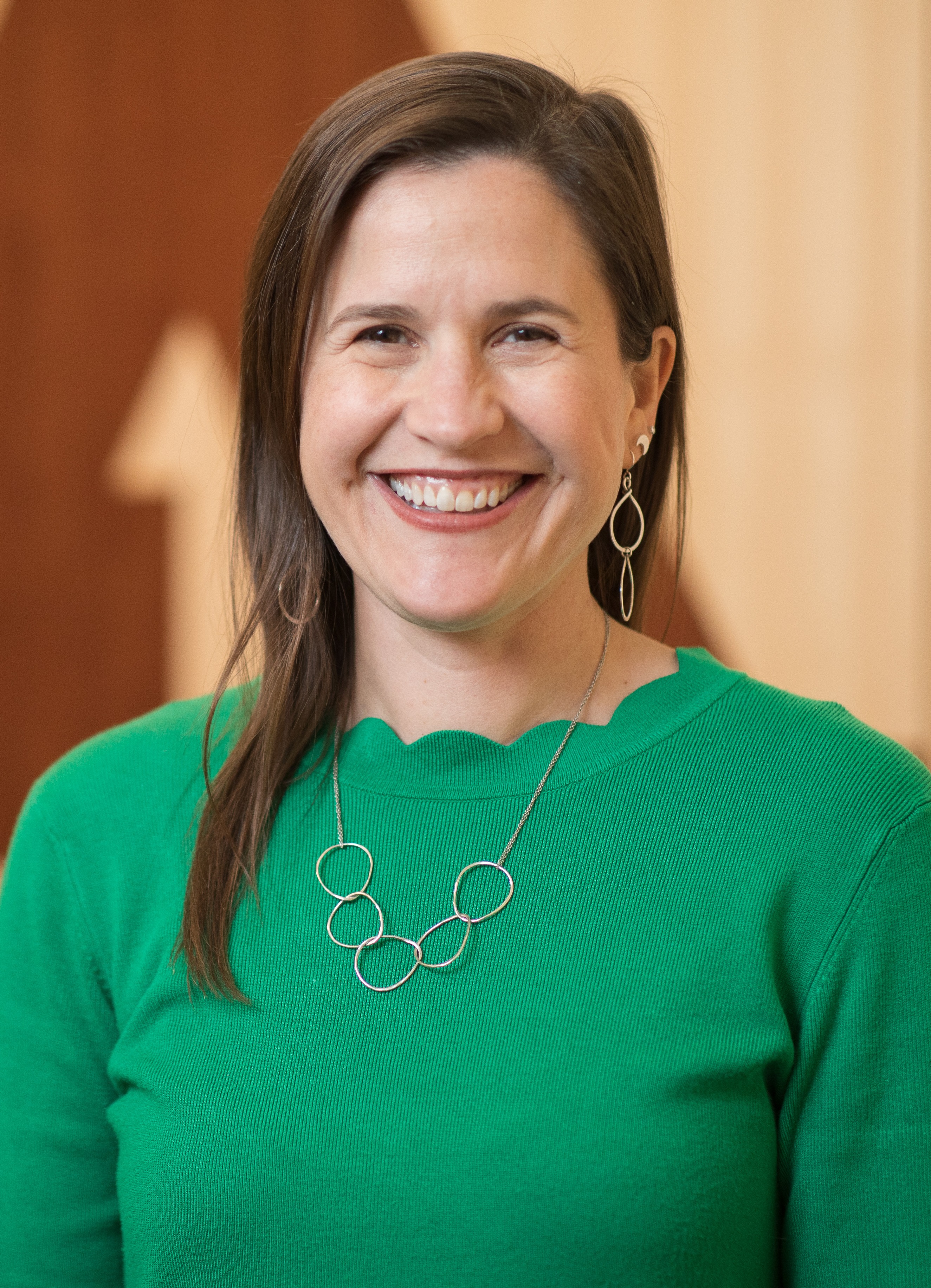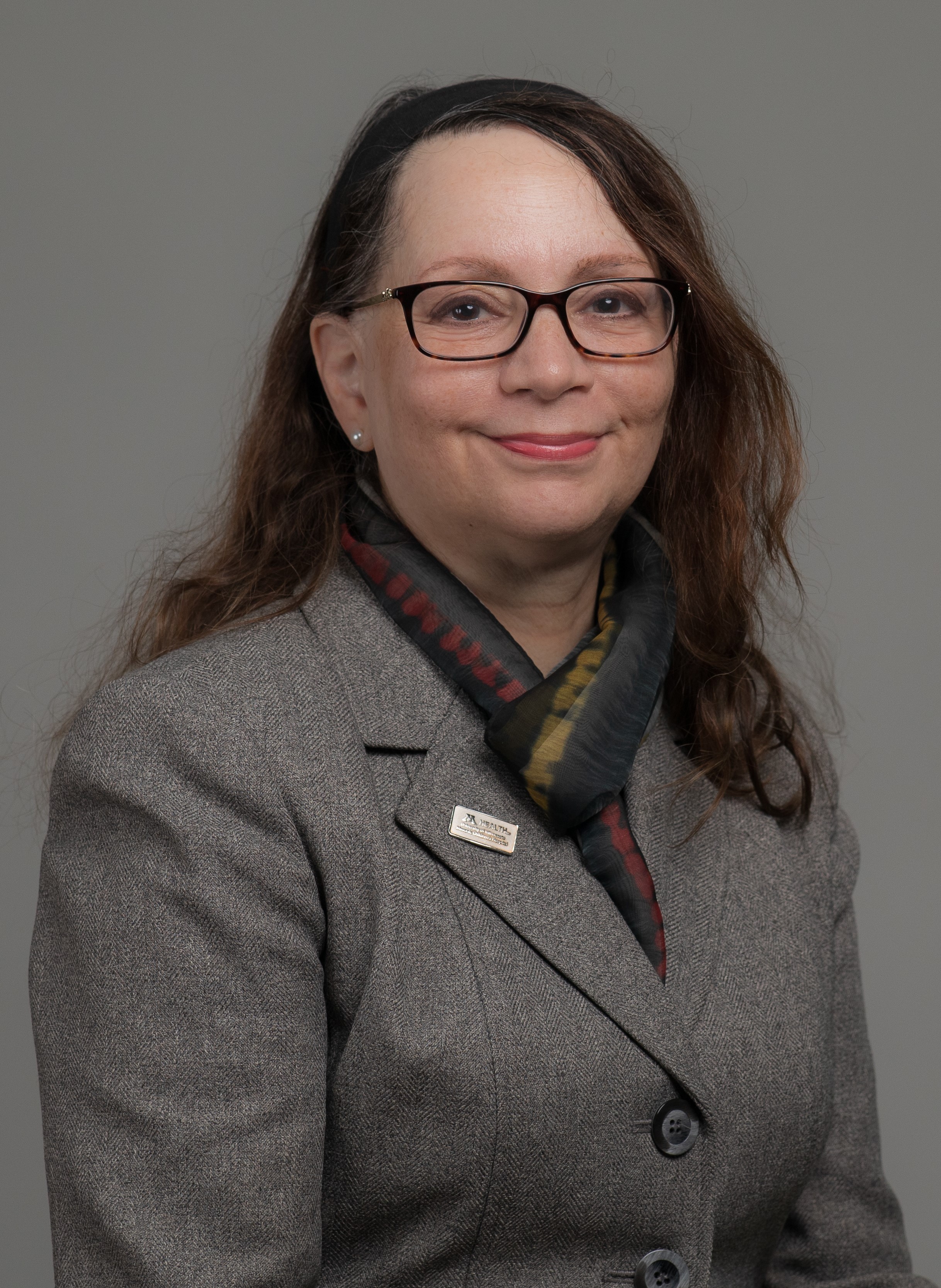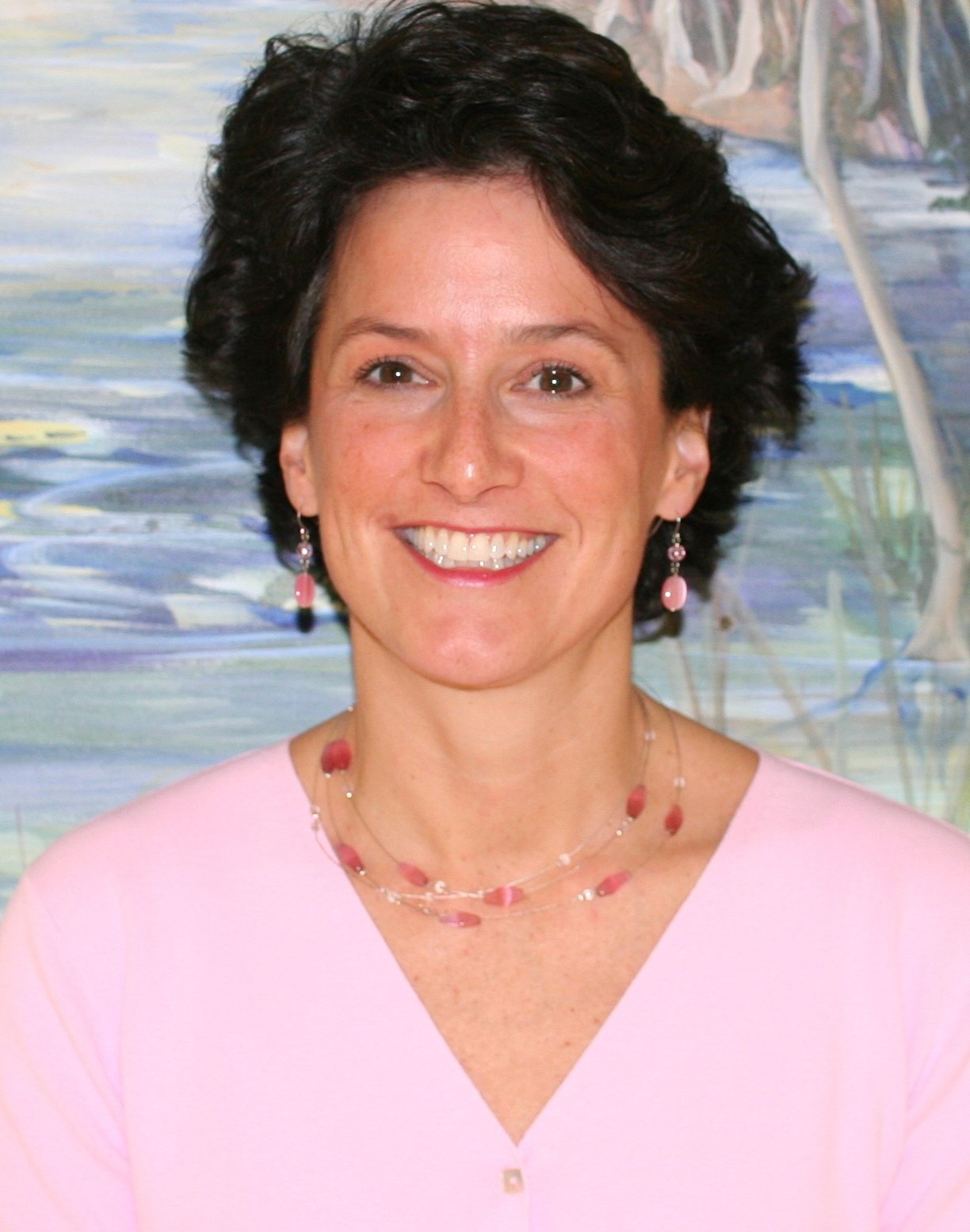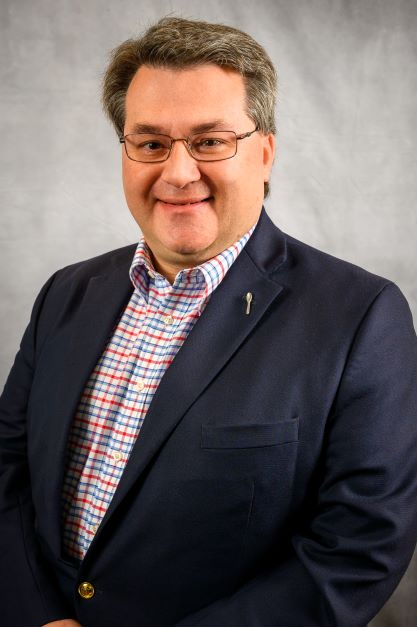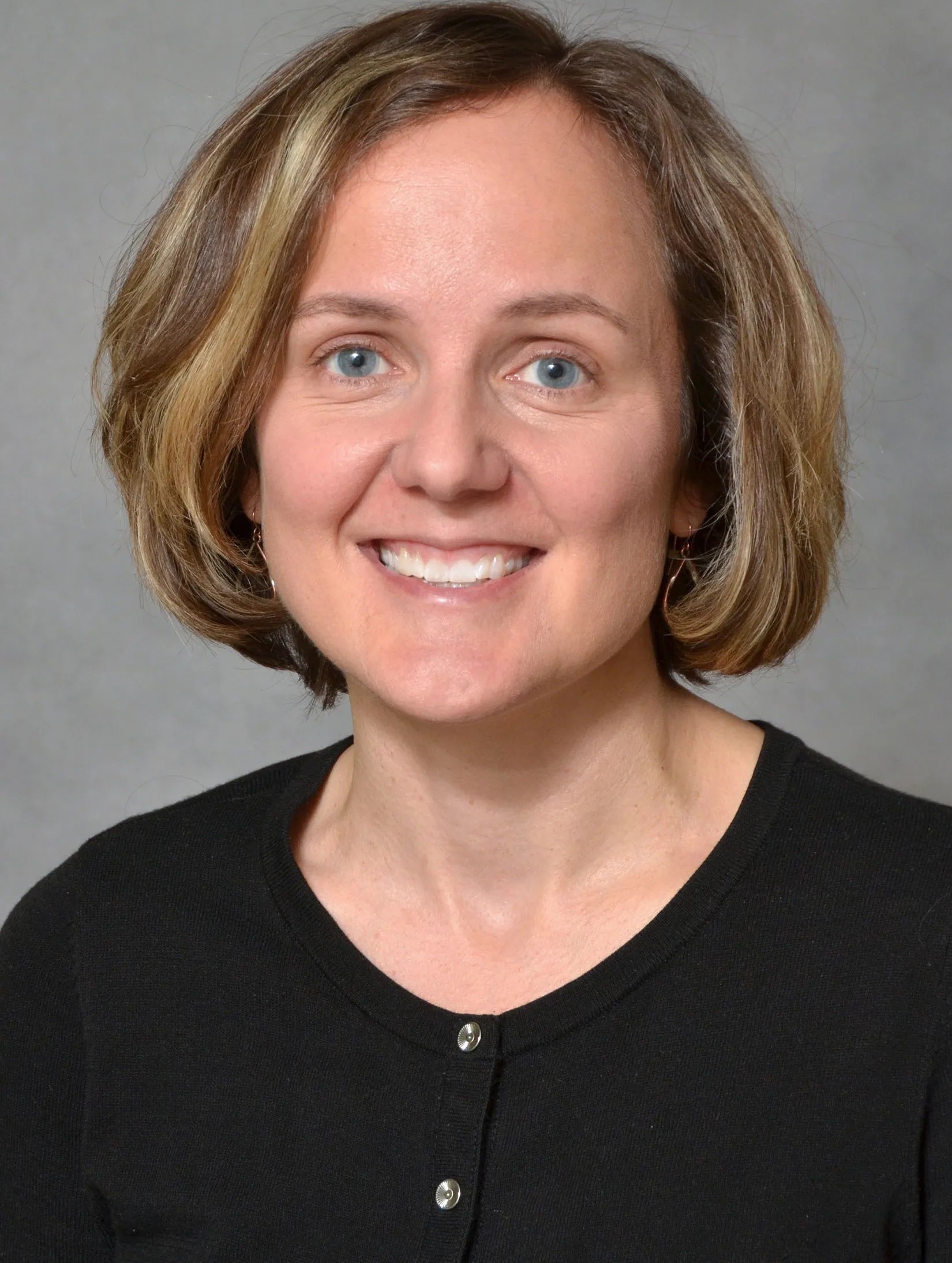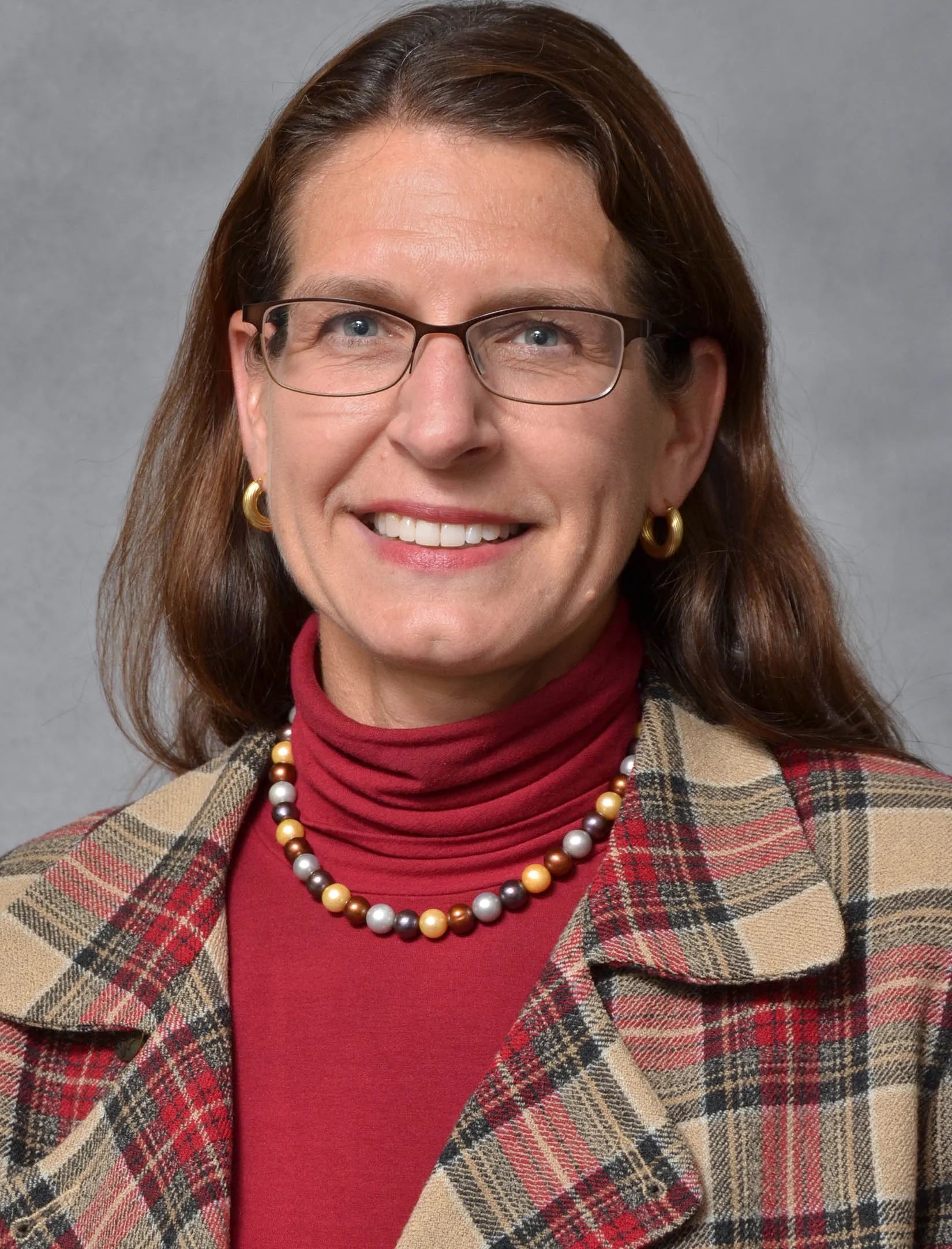Pediatrics Leadership


Bio
Dr. Joseph Neglia is the Head of the Department of Pediatrics at the University of Minnesota Medical School and the Physician-in-Chief of the M Health Fairview Masonic Children's Hospital. He holds the Ruben-Bentson Chair and a joint appointment as Professor in the Department of Pediatrics and in the Division of Epidemiology and Community Health in the School of Public Health.
Dr. Neglia's area of research involves the long-term effects of cancer therapy in cancer survivors and the occurrence of second malignancies following childhood cancer. He is nationally and internationally recognized for his contributions to the field of childhood cancer long-term effects. He currently is Principal Investigator at the Masonic Cancer Center, University of Minnesota for the Children's Oncology Group (COG), and the vice-chair of the Voting Body of the COG. Dr. Neglia is also Principal Investigator of an American Cancer Society Grant investigating neuro-behavioral outcomes of children recently treated for leukemia.
Dr. Neglia has been involved in numerous service activities both within and outside of the University of Minnesota. He is an active member of Children's Oncology Group, American Society of Pediatric Hematology/Oncology, and Masonic Cancer Center at the University of Minnesota. He regularly reviews manuscripts for numerous journals including the New England Journal of Medicine, the Journal of the National Cancer Institute, and Cancer among others. At the University level, he has been elected as an alternate member of the University Senate and developed and directed the original Cancer Center Database.
Education
Fellowships, Residencies, and Visiting Engagements
Licensures and Certifications
Honors and Recognition
Contact
Address
Pediatric Department Head OfficeAcademic Office Building
2450 Riverside Ave S AO-121
Minneapolis, MN 55454
Administrative Contact
Administrative Phone: 612-624-3113
Administrative Email: pedchair@umn.edu


Bio
Catherine M. Bendel, MD, is an Associate Professor of Pediatrics in the Division of Neonatology. She earned her MD, served her internship and residency and completed her Neonatal-Perinatal Medicine Fellowship at the University of Minnesota. In addition to attending on the Neonatal Intensive Care Unit, Dr. Bendel serves as the Associate Program Director of the Neonatal-Perinatal Medicine Fellowship Program and as the department-wide lead fellowship director. Her early research interests included neonatal infectious diseases in general and the pathogenesis of infections with Candida albicans, in particular. She received two U.S. patents for Candida albicans integrin-like proteins. More recently she has focused on Fellow Education and Equity, Diversity & Inclusion efforts. She has published in Pediatric Research, Pediatrics, Journal of Pediatrics, Critical Care Medicine and Pediatric Infectious Disease and contributions to book chapters.
Clinical Summary
Neonatology; Neonatal Infectious Diseases; Equity, Diversity & Inclusion
Education
Fellowships, Residencies, and Visiting Engagements
Licensures and Certifications
Honors and Recognition
Contact
Address
Pediatric NeonatologyAcademic Office Building
2450 Riverside Ave S AO-401
Minneapolis, MN 55454

Bio
Emily Borman-Shoap joined the Department of Pediatrics in August, 2007, and is the Program Director for the Pediatric Residency Program and Vice Chair for Education. She also works as a general pediatrician at the Fairview Children's Clinic and at the University of Minnesota Masonic Children's Hospital.
Dr. Borman-Shoap graduated from Washington University School of Medicine in St. Louis. She then completed her pediatric residency at the University of Minnesota. She received the Susan B. Vincent resident teaching award at the completion of her residency in 2006. She served as a chief resident at the University of Minnesota from 2006-2007.
Her area of focus is medical education with a special emphasis on competency-based medical education, innovation in curricular design, and mentorship.
Education
Fellowships, Residencies, and Visiting Engagements
Licensures and Certifications
Honors and Recognition
Contact
Address
Pediatric Education Office1st Floor East Building
8950A (Campus Delivery Code)
2450 Riverside Ave
Minneapolis, MN 55454
Administrative Contact
Laurel Jefferson
Administrative Phone: 612-625-9178
Administrative Email: mchen022@umn.edu
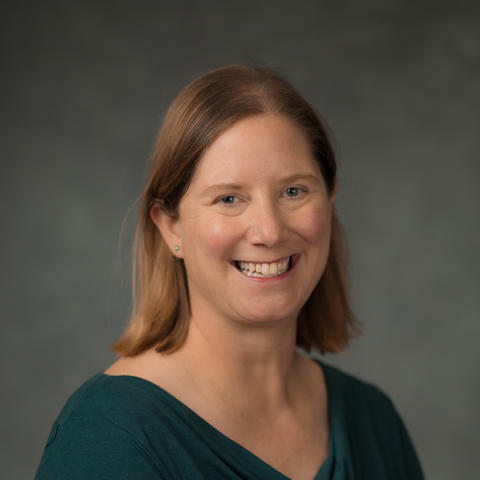

Bio
Dr. Fischer is a pediatric critical care physician and Associate Professor at the University of Minnesota. She is an alumna of Vassar College, completed her pediatric residency at Dartmouth-Hitchcock Hospital Center, and her pediatric critical care fellowship at the University of Minnesota. Dr. Fischer's non-clinical focus is on pediatric medical devices and drug therapies. She is an alumna of the UMN Medical Device Center Innovation Fellows Program and is the founder and Director of the Pediatric Device Innovation Consortium (PDIC), which seeks to move pediatric technologies forward towards commercialization. Dr. Fischer also serves as Respiratory Care Director and ECMO Director for UMN Masonic Children's Hospital, as well as Associate Chair for Research Partnerships within the Pediatrics Department.
Her research interests include pediatric and adult medical device and drug development and clinical trials, ECMO, critical care, and regulation of medical devices.
Clinical Summary
Pediatric Critical Care; Pediatric Medical Device Technology
Education
Fellowships, Residencies, and Visiting Engagements
Licensures and Certifications
Honors and Recognition
Contact
Address
Pediatric Critical Care MedicineAcademic Office Building
2450 Riverside Ave S AO-301
Minneapolis, MN 55454
Administrative Contact
Joanna Perrier
Administrative Phone: 612-625-6678
Administrative Email: jperrier@umn.edu


Bio
Michael K. Georgieff, MD, holds the position of the Martin Lenz Harrison Land Grant Chair in Pediatrics. He is a Professor of Pediatrics, Obstetrics and Gynecology, and Developmental Psychology, the Executive Vice Chair of the Department of Pediatrics, and the Director of the Center for Neurobehavioral Development. He received his MD from Washington University in St. Louis, Missouri. He served his internship, residency and neonatal fellowship at the Children's Hospital of Philadelphia and a fellowship in neonatology at the University of Minnesota. In addition to caring for patients on the Neonatal Intensive Care Unit, Dr. Georgieff is Director of the NICU Follow-up Program. Dr. Georgieff's research focuses on fetal/neonatal nutrition and brain development, specifically on the effect of early life iron nutrition and neurocognitive function. He has been continuously funded in this field by the National Institutes of Health for 35 years and has published over 300 scientific articles. He advises the American Academy of Pediatrics, the National Institutes of Health and UNICEF on nutrition and early child development.
Clinical Summary
Iron and infant development; Maternal-fetal medicine; Neonatology; Perinatal iron metabolism
Education
Fellowships, Residencies, and Visiting Engagements
Licensures and Certifications
Honors and Recognition
Professional Memberships
Contact
Address
Pediatric NeonatologyAcademic Office Building
2450 Riverside Ave S AO-401
Minneapolis, MN 55454


Bio
Dr. Marmet is an Associate Professor of Pediatrics at the University of Minnesota (UMN). He received his medical degree from Tel Aviv University, and completed pediatric residency training at UMN. After several years as a primary care pediatrician in the Twin Cities, he transitioned to full-time hospital-based care; Dr. Marmet is a Board-Certified Pediatric Hospital Medicine specialist, working at UMN since 2010. He is the Division Director for the Pediatric Hospital Medicine program that manages inpatients at M Health Fairview Minnesota Masonic Children’s Hospital, Ridges Hospital and Maple Grove Hospital. He is also the Associate Program Director for the Pediatric Hospital Medicine Fellowship Program. Dr. Marmet is an organizational leader in quality improvement and patient safety, and teaches on these areas at the UMN Medical School. He has special interests in medical education, quality improvement and enhanced communication between doctors and patients.
Clinical Summary
Anaphylaxis; Complex medical conditions; General Pediatrics; Hospital-based care; Nutrition and healthy lifestyles
Education
Fellowships, Residencies, and Visiting Engagements
Licensures and Certifications
Honors and Recognition
Contact
Address
Pediatric Hospital MedicineAcademic Office Building
2450 Riverside Ave S AO-301
Minneapolis, MN 55454
Administrative Contact
Cathy Centola
Administrative Phone: 612-625-6678
Administrative Email: kreme002@umn.edu
Administrative Fax Number: 612-626-1144


Bio
Professor Antoinette Moran, MD, is a Professor in the Division of Pediatric Endocrinology at the University of Minnesota. She has been working with patients with diabetes since 1987, performing research and clinical care. Her research in cystic fibrosis-related diabetes resulted in her being named the first annual recipient of the Cystic Fibrosis Foundation's Richard C. Talamo Distinguished Clinical Achievement Award, for "research contributions that have had significant influence on the course of the disease." She is a leader in the field of clinical trials to prevent and cure type 1 diabetes. Her research is funded by the National Institutes of Health, the Cystic Fibrosis Foundation, and industry. She is involved in global health and has been working with a pediatric diabetes clinic in Uganda for more than 10 years.
Research Summary
Cystic fibrosis related diabetes; Type 1 diabetes prevention; Pediatric diabetes care in East Africa
Clinical Summary
Cystic fibrosis-related diabetes mellitus; Pediatric diabetes; Type 1 diabetes; Pediatric diabetes care in East Africa
Education
Fellowships, Residencies, and Visiting Engagements
Licensures and Certifications
Honors and Recognition
Selected Publications
Contact
Address
Pediatric EndocrinologyAcademic Office Building
2450 Riverside Ave S AO-201
Minneapolis, MN 55454

Bio
Angela Panoskaltsis-Mortari, PhD is a Professor of Pediatrics in the Division of Blood and Marrow Transplant & Cellular Therapy. She is also a Professor of Medicine in the Division of Pulmonary, Allergy, Critical Care and Sleep. Dr. Panoskaltsis-Mortari is the Director of the Cytokine Reference Laboratory, the Director of the 3D Bioprinting Facility at the University of Minnesota and Vice Chair for Research for the Department of Pediatrics.
Dr. Panoskaltsis-Mortari received her PhD from the University of Western Ontario. She was a post-doctoral fellow in the Department of Pathology at the University of Alabama and a post-doctoral research associate in the Department of Pediatrics at the University of Minnesota. She joined the University of Minnesota faculty in 1995.
Dr. Panoskaltsis-Mortari has board certification from the American Board of Medical Laboratory Immunology. She is a member of numerous immunology, pulmonary, and hematology professional societies, and the author of over 275 articles which have appeared in such publications as Advanced Materials, Journal of Clinical Investigation, Blood, Biology of Blood and Marrow Transplantation, and American Journal of Physiology (Lung, Cell. & Mol. Physiol.).
Research Summary
With 25 years of experience in animal models of stem cell transplant, lung injury, mesenchymal stem/stromal cell therapy and the biology of graft-vs-host disease (GVHD) after bone marrow transplant, Dr. Angela Panoskaltsis-Mortari's work has evolved into the bioengineering field, and she is recognized as one of the thought leaders in lung bioengineering. Dr. Panoskaltsis-Mortari's laboratory research currently focuses upon 2 major themes: 1) bioengineering autologous tissues such as trachea and esophagus using 3D bioprinting and customized hydrogels including decellularized extracellular matrix; and 2) 3D bioprinting of cancer models.
Dr. Panoskaltsis-Mortari established and directs the 3D Bioprinting Facility at the University of Minnesota. She also directs the UMN Cytokine Reference Laboratory (a CLIA-licensed facility). She is a member of the Stem Cell Institute, the Institute for Engineering in Medicine, the Lillehei Heart Institute, the Masonic Cancer Center, the Center for Immunology, and the Robotics Institute. She is funded by the NIH, has mentored many post-docs, MD trainees, graduate students and undergrads in various training programs. Her goal is to realize the potential of regenerative medicine by converging the fields of stem cell biology, mechanical & biomedical engineering, biomaterials, physiology, robotics, and surgery to bioengineer autologous tissues/organs for transplant using a patient's own cells that would not be rejected by their immune system.
Education
Fellowships, Residencies, and Visiting Engagements
Licensures and Certifications
Honors and Recognition
Selected Publications
Contact
Address
Pediatric Blood and Marrow Transplantation & Cellular TherapyMayo Mail Code 366
420 Delaware Street SE
Minneapolis, MN 55455
Administrative Contact
Janelle Willard
Administrative Phone: 612-626-2961
Administrative Email: traut001@umn.edu
Administrative Fax Number: 612-626-4074

Bio
Dr. Pitt is a graduate from the Johns Hopkins University School of Medicine. He completed his residency in pediatrics at Northwestern University's Children's Memorial Hospital in Chicago. Dr. Pitt believes that a good pediatrician must be a good educator and enjoys equipping medical students and residents with tools that improve bedside teaching, patient rapport, and parent's understanding of complex diseases in their children. He is an Associate Program Director for the University of Minnesota Pediatric Residency. An award-winning magician who has performed internationally since the age of 8, Dr. Pitt leads workshops for pediatricians on how to incorporate magic into the physical exam to ease anxiety, build rapport, and increase diagnostic yield.
Education
Fellowships, Residencies, and Visiting Engagements
Licensures and Certifications
Honors and Recognition
Contact
Address
Pediatric Hospital MedicineAcademic Office Building
2450 Riverside Ave S AO-301
Minneapolis, MN 55454
Administrative Contact
Cathy Centola
Administrative Phone: 612-625-6678
Administrative Email: kreme002@umn.edu
Administrative Fax Number: 612-626-1144
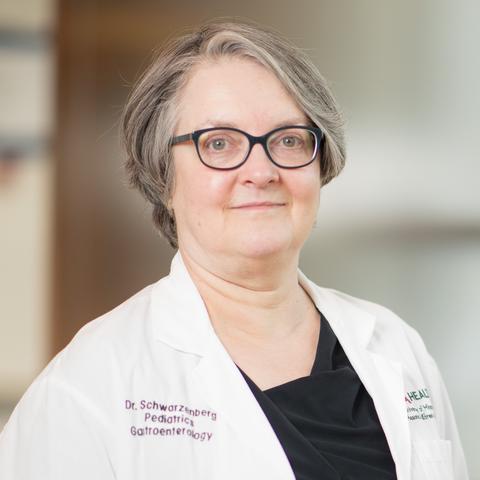
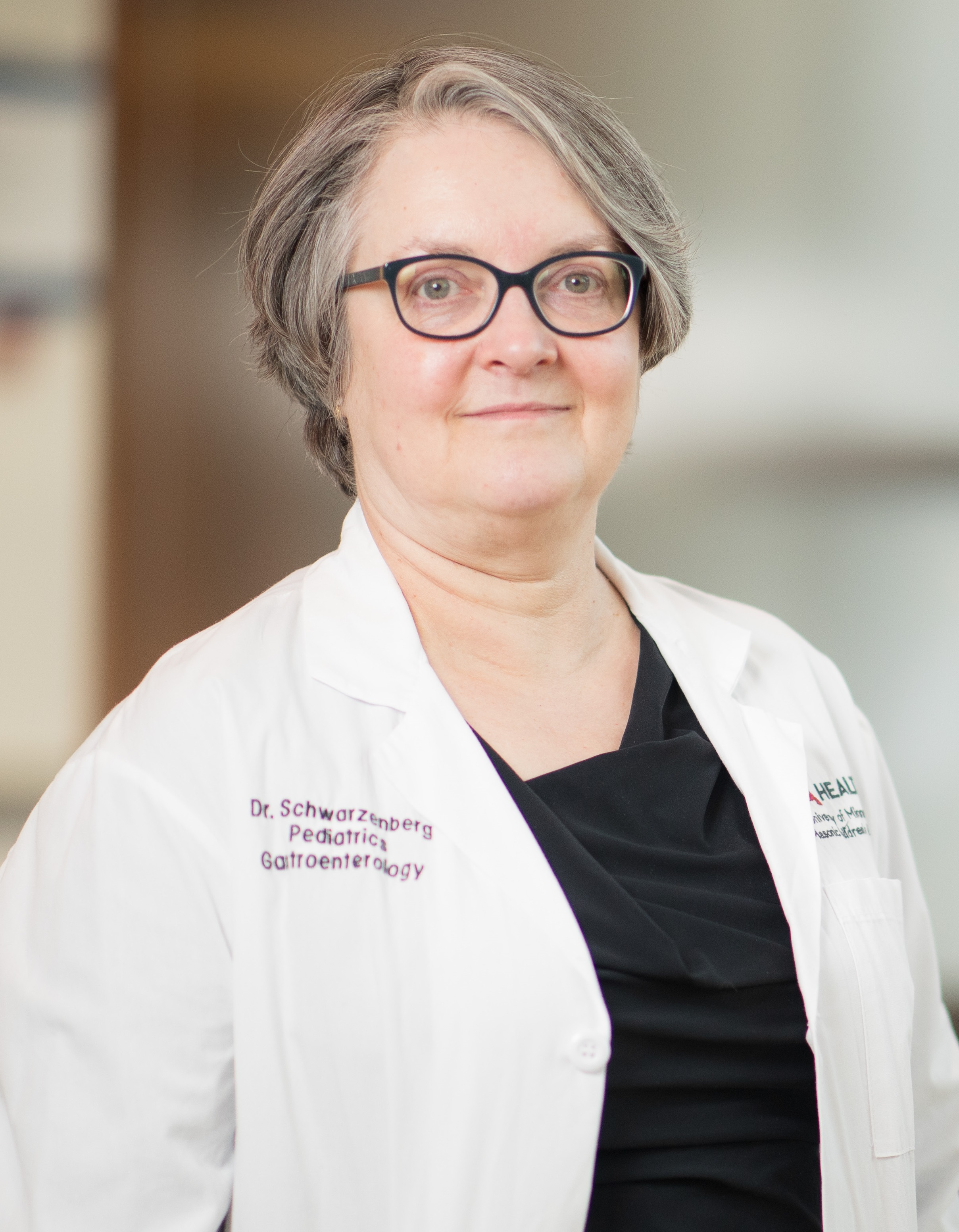
Bio
While cystic fibrosis is considered a pulmonary disease, attention to excellent nutrition and good growth is essential to optimal pulmonary function and extended survival. I consider my role in the management of children with cystic fibrosis to reduce pain and disability associated with gastrointestinal and liver disease in CF, and to offer aggressive interventions to improve nutrition in children unable to achieve normal growth. I am proud to be a member of a team of caregivers dedicated to both superior clinical care of children with CF, and to clinical research to improve survival in this disease.
Clinical Summary
Pancreatic disease; Chronic pancreatitis; Pancreatectomy/auto islet cell transplantation; Pediatric liver disease, particularly Hepatitis B; Gastrointestinal, nutritional and liver disease in cystic fibrosis
Education
Fellowships, Residencies, and Visiting Engagements
Licensures and Certifications
Honors and Recognition
Contact
Address
Pediatric Gastroenterology, Hepatology & NutritionAcademic Office Building
2450 Riverside Ave S AO-201
Minneapolis, MN 55454
Division Directors

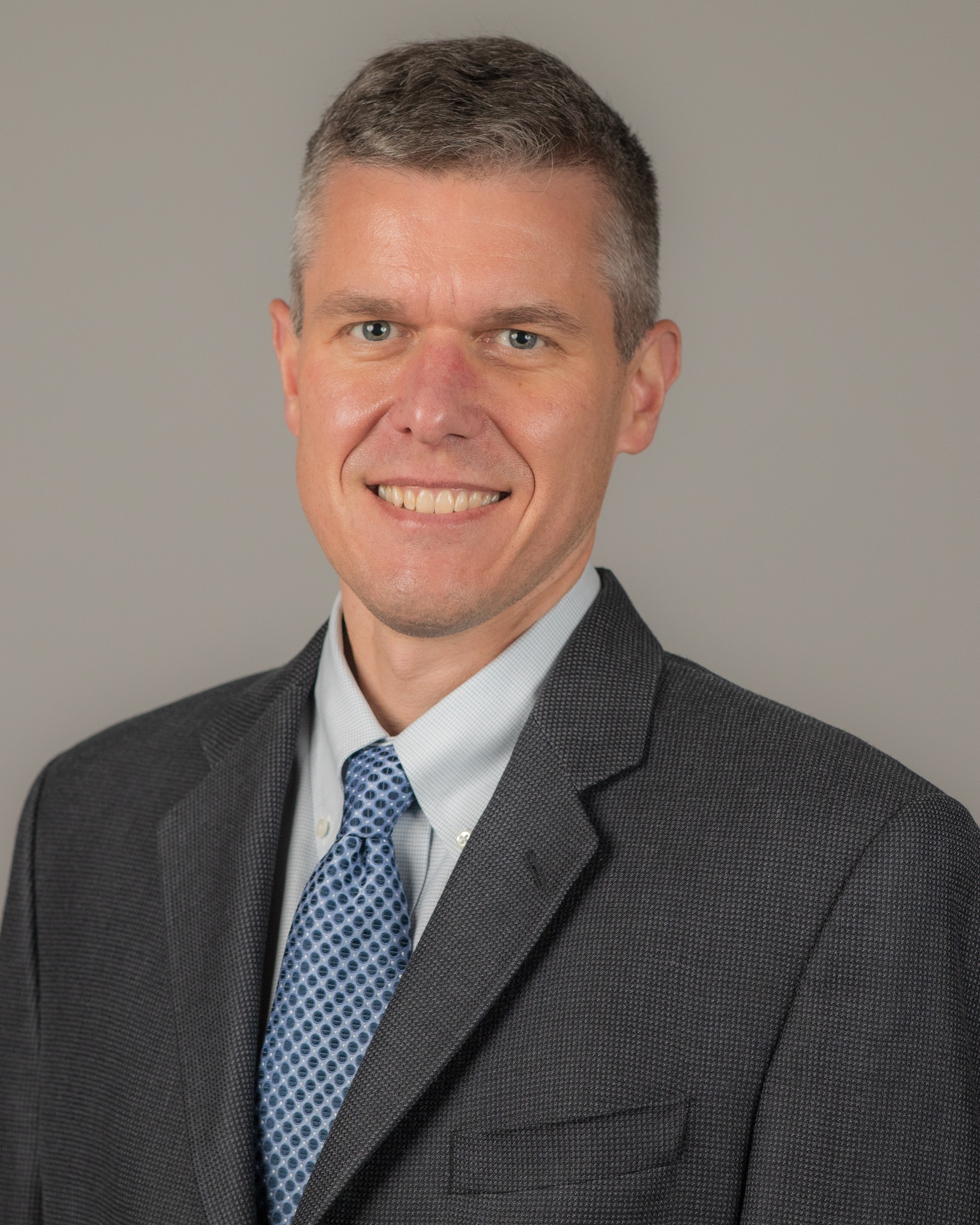
Bio
Bryce A. Binstadt, MD, PhD, is an Professor of Pediatrics in the Division of Pediatric Rheumatology, Allergy, and Immunology and a Distinguished University Teaching Professor. Dr. Binstadt cares for children with arthritis, systemic lupus erythematosus, dermatomyositis, and related rheumatologic disorders. He heads a laboratory in the University of Minnesota's Center for Immunology focused on understanding the pathogenesis of autoimmune diseases with particular emphasis on immune-mediated cardiovascular disease. He is the Director of the Pediatric Rheumatology Fellowship Training Program, an Associate Director of the Medical Scientist Training Program (MD/PhD), and Director of the Pediatric Physician Scientist Training Program.
Dr. Binstadt received his MD degree from Mayo Medical School and his PhD in Immunology from Mayo Graduate School in Rochester, MN. He then completed his residency in the Boston Combined Residency Program in Pediatrics at Boston Children's Hospital and Boston Medical Center, followed by fellowship training in Pediatric Rheumatology at Boston Children's Hospital. He served as an attending physician in the Rheumatology Program at Boston Children's Hospital/Harvard Medical School as well as a research fellow in the Section on Immunology and Immunogenetics at the Joslin Diabetes Center for two years before joining the faculty at the University of Minnesota in 2007. Dr. Binstadt is board-certified in Pediatrics and Pediatric Rheumatology.
Research Summary
Autoimmunity, Innate Immunity
The Binstadt Laboratory is broadly interested in autoimmune and rheumatic disease pathogenesis.
The main area of investigation focuses on how systemic autoimmune diseases lead to cardiovascular inflammation and damage. We use the K/BxN T cell receptor (TCR) transgenic mouse model. K/BxN mice spontaneously develop both inflammatory arthritis and autoimmune valvular carditis, similar to patients with rheumatic heart disease or systemic lupus erythematosus. Current projects seek to understand how macrophages, fibroblasts, and endothelial cells promote progression of cardiac valve inflammation and fibrosis.
A second project focuses on developing and testing novel inhibitors of the arthritis-promoting cytokine TNF.
A new collaborative project explores cardiovascular inflammation that occurs in lysosomal storage diseases, particularly mucopolysaccharidosis type I (MPS-I).
Current Funding Sources:
- National Institutes of Health (NIH)
- American College of Rheumatology/Rheumatology Research Foundation
Clinical Summary
Juvenile dermatomyositis; Juvenile rheumatoid arthritis; Pediatric autoimmune diseases; Systemic lupus erythematosus
Education
Fellowships, Residencies, and Visiting Engagements
Licensures and Certifications
Honors and Recognition
Contact
Address
Pediatric Rheumatology, Allergy, & ImmunologyAcademic Office Building
2450 Riverside Ave S AO-10
Minneapolis, MN 55454


Bio
Dr. Borowsky is Professor of Pediatrics, Director of the Division of General Pediatrics and Adolescent Health (DOGPAH), and Gisela and E. Paul Konopka Chair in Adolescent Health and Development at the University of Minnesota. As a general pediatrician, she enjoys caring for patients and their families and teaching future health care professionals at the Community University Health Care Center (CUHCC), a Federally Qualified Health Center serving the diverse community of South Minneapolis. She is passionate about CUHCC's mission of transforming care and education to advance health equity and DOGPAH's commitment to achieving health, justice, and positive development for all children, youth, and families through community-centered health care, research, education, and advocacy. Her research focuses on youth violence prevention, structural and contextual factors underlying health and health behaviors, and advancing health equity. Mentoring medical, graduate, undergraduate, and high school students, as well as residents, fellows, and junior faculty in multiple disciplines continues to be a career highlight.
Research Summary
Social determinants of youth health and equity; Development of effective strategies to promote psychosocial health among children, youth, and families; Prevention of youth interpersonal and self-directed violence
Youth Violence Prevention Expert Alert
Talking youth violence prevention awareness with U of M
Clinical Summary
Pediatric primary health care; Relationship-centered care; Strength-based and upstream actions to promote health and justice
Education
Fellowships, Residencies, and Visiting Engagements
Licensures and Certifications
Honors and Recognition
Contact
Address
General Pediatrics & Adolescent Health717 Delaware St SE, 3rd floor
Minneapolis, MN 55414


Bio
Dr. Dobyns is Professor of Pediatrics and Director of the Division of Genetics and Metabolism at the University of Minnesota. He joined the Faculty in June 2020 for his second tour at the U, having worked in the Division of Pediatric Neurology from 1992-1998. He is a physician-scientist who studies the nature and causes of developmental brain disorders, and is a leading authority on the causes of human brain malformations. While best known for his work on lissencephaly (smooth brain) and megalencephaly (enlarged brain), he provided the original descriptions for more than 10 clinically recognizable and now well-known syndromes including Smith-Magenis syndrome, rapid-onset dystonia-parkinsonism, coloboma-renal syndrome, bilateral frontoparietal cobblestone malformation, megalencephaly-capillary malformation syndrome (MCAP), megalencephaly-polymicrogyria-polydactly-hydrocephalus syndrome (MPPH) and X-linked lissencephaly with abnormal genitalia (XLAG), all of these now linked to the underlying gene or genes. He co-discovered at least 14 pathogenic copy number variants including the well-known deletion 17p13.3 (Miller-Dieker syndrome), deletion 17p11.2 (Smith-Magenis syndrome) and deletion 16p11.2 (autism and intellectual disability), and co-discovered almost 70 human disease genes.
Dr. Dobyns has also designed and published the major classification systems now in use for brain malformation, and several of the terms that we now use for these disorders come from his work, for example: "malformations of cortical development"; "cobblestone malformation", and "dysgyria". He has also made contributions on the causes of neurodegenerative disorders and developmental disorders of other systems, such as vascular malformations. Dr. Dobyns has served as Principle Investigator on major NIH grants since 1999, and recently published his 400th peer-reviewed scientific paper. In recognition of these and other accomplishments, he received the 2018 Bernard Sachs Award for research in neuroscience with relevance to the care of children with neurological disorders from the Child Neurology Society.
Research Summary
Neurodevelopmental disorders especially those associated with abnormal brain size, malformations and epilepsy, vascular malformations, mosaicism.
Education
Fellowships, Residencies, and Visiting Engagements
Licensures and Certifications
Honors and Recognition
Contact
Address
Pediatric Genetics & MetabolsimRiverside Professional Building
606 24th Ave. S, Suite 500
Minneapolis, MN 55454
Administrative Contact
Denise Fogel
Administrative Phone: 612-624-5965
Administrative Email: fogel033@umn.edu
Administrative Fax Number: 612-626-2993


Bio
Dr. Fischer is a pediatric critical care physician and Associate Professor at the University of Minnesota. She is an alumna of Vassar College, completed her pediatric residency at Dartmouth-Hitchcock Hospital Center, and her pediatric critical care fellowship at the University of Minnesota. Dr. Fischer's non-clinical focus is on pediatric medical devices and drug therapies. She is an alumna of the UMN Medical Device Center Innovation Fellows Program and is the founder and Director of the Pediatric Device Innovation Consortium (PDIC), which seeks to move pediatric technologies forward towards commercialization. Dr. Fischer also serves as Respiratory Care Director and ECMO Director for UMN Masonic Children's Hospital, as well as Associate Chair for Research Partnerships within the Pediatrics Department.
Her research interests include pediatric and adult medical device and drug development and clinical trials, ECMO, critical care, and regulation of medical devices.
Clinical Summary
Pediatric Critical Care; Pediatric Medical Device Technology
Education
Fellowships, Residencies, and Visiting Engagements
Licensures and Certifications
Honors and Recognition
Contact
Address
Pediatric Critical Care MedicineAcademic Office Building
2450 Riverside Ave S AO-301
Minneapolis, MN 55454
Administrative Contact
Joanna Perrier
Administrative Phone: 612-625-6678
Administrative Email: jperrier@umn.edu


Bio
Dr. Gross is an Associate Professor in the Department of Pediatrics. She completed her MS at North Dakota State University and PhD at Western Michigan University. Her clinical internship was in Behavioral Pediatrics at the University of Nebraska Medical Center and post-doctoral fellowship was at Johns Hopkins University School of Medicine. Dr. Gross is a Board Certified Behavior Analyst. Dr. Gross is the Section Head and Training Director of the Pediatric Psychology Program at the University of Minnesota. Her clinical interests include pediatric weight management and weight loss surgery; chronic disease management; as well as Fetal Alcohol Spectrum Disorders and other neurodevelopmental disorders. Dr. Gross is actively involved in NIH-funded research in the area of pediatric severe obesity. She is the Associate Director for Clinical Care in the Center for Pediatric Obesity Medicine at the University of Minnesota, and is a member of the Association for Behavior Analysis and The Obesity Society.
Dr. Gross is involved in the following clinics:
- Pediatric Psychology
- Fetal Alcohol Spectrum Disorders
- International Adoption Clinic
- Pediatric Weight Management Clinic
- Teen Weight Loss Surgery Clinic
- Neonatal Intensive Care Unit (NICU) Follow-up Clinic
- Metabolic Disorders Follow-up Clinic
Education
Fellowships, Residencies, and Visiting Engagements
Licensures and Certifications
Contact
Address
Clinical Behavioral Neuroscience2025 E. River Parkway
7962A
Minneapolis, MN 55414


Bio
Jeff Louie, MD, is Associate Professor of Pediatrics in the Division of Emergency Medicine and staff physician at M Health Fairview Masonic Children's Hospital.
Research Summary
Quality control and safety; Introduction of new technology to the bedside; Improving education processes for nurses, nurse practitioners, and physicians
Education
Fellowships, Residencies, and Visiting Engagements
Licensures and Certifications
Honors and Recognition
Contact
Address
Pediatric Emergency MedicineAcademic Office Building
2450 Riverside Ave S AO-301
Minneapolis, MN 55454
Administrative Contact
Cathy Centola
Administrative Phone: 612-625-6678
Administrative Email: kreme002@umn.edu
Administrative Fax Number: 612-626-1144
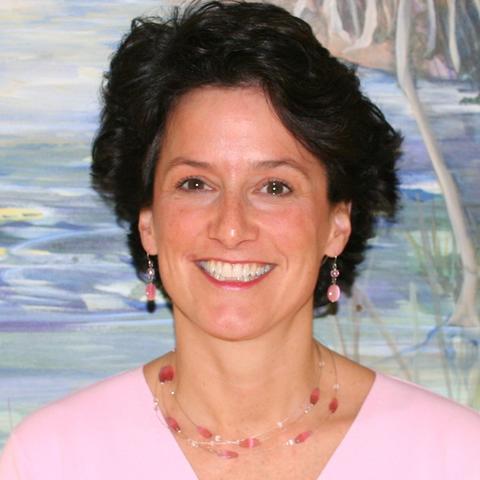
Bio
Dr. MacMillan is Professor in Pediatrics in the Division of Blood and Marrow Transplant & Cellular Therapy at the University of Minnesota. Dr. MacMillan received her MSc and MD from the University of Toronto in 1991. She completed residency in Pediatrics and a fellowship in Pediatric Hematology and Oncology at the Hospital for Sick Children at the University of Toronto in 1997. She then completed a fellowship in Pediatric Blood and Marrow Transplantation at the University of Minnesota and joined the faculty in 1999.
Dr. MacMillan's clinical focus is allogeneic hematopoietic cell transplantation for children with malignant and non-malignant diseases, especially Fanconi anemia. Dr. MacMillan is Director of the Kidz1stFund Comprehensive Fanconi Anemia Center at the University of Minnesota, which funds innovative cellular and gene therapy research for Fanconi anemia. Her research interests also include graft-versus-host disease (GVHD), especially the development and implementation of novel strategies to prevent and treat acute GVHD, and the optimization of acute GVHD clinical trial design by determining GVHD risk and best trial endpoints.
Dr. MacMillan holds 3 INDs for cellular therapy and has an excellent understanding of the regulatory requirements of translational research. She has authored more than 150 peer-reviewed manuscripts and book chapters and is a member of numerous professional societies.
Research Summary
1. Acute Graft-Versus-Host Disease: T regulatory cells to prevent GVHD & Novel pharmacologic agents/ regimens
2. Fanconi anemia: Novel preparative therapies, Gene therapy - multipotent adult stem cell, & Mechanisms to speed immune recovery and reduce infection after transplantation
3. Juvenile Myelomonocytic Leukemia: Novel phase I agents & Novel preparative therapies
Clinical Summary
Clinical specialties: Blood and Marrow Transplantation, Fanconi Anemia, Juvenile Myelomonocytic Leukemia
Education
Fellowships, Residencies, and Visiting Engagements
Licensures and Certifications
Honors and Recognition
Contact
Address
Pediatric Blood and Marrow Transplantation & Cellular TherapyMayo Mail Code 366
420 Delaware Street SE
Minneapolis, MN 55455
Administrative Contact
Joyce Selle
Administrative Phone: 612-625-7117
Administrative Email: selle003@umn.edu
Administrative Fax Number: 612-626-4074


Bio
Dr. Marmet is an Associate Professor of Pediatrics at the University of Minnesota (UMN). He received his medical degree from Tel Aviv University, and completed pediatric residency training at UMN. After several years as a primary care pediatrician in the Twin Cities, he transitioned to full-time hospital-based care; Dr. Marmet is a Board-Certified Pediatric Hospital Medicine specialist, working at UMN since 2010. He is the Division Director for the Pediatric Hospital Medicine program that manages inpatients at M Health Fairview Minnesota Masonic Children’s Hospital, Ridges Hospital and Maple Grove Hospital. He is also the Associate Program Director for the Pediatric Hospital Medicine Fellowship Program. Dr. Marmet is an organizational leader in quality improvement and patient safety, and teaches on these areas at the UMN Medical School. He has special interests in medical education, quality improvement and enhanced communication between doctors and patients.
Clinical Summary
Anaphylaxis; Complex medical conditions; General Pediatrics; Hospital-based care; Nutrition and healthy lifestyles
Education
Fellowships, Residencies, and Visiting Engagements
Licensures and Certifications
Honors and Recognition
Contact
Address
Pediatric Hospital MedicineAcademic Office Building
2450 Riverside Ave S AO-301
Minneapolis, MN 55454
Administrative Contact
Cathy Centola
Administrative Phone: 612-625-6678
Administrative Email: kreme002@umn.edu
Administrative Fax Number: 612-626-1144

Bio
Dr. Miller completed his Pediatric residency (2000) and Pediatric Endocrinology fellowship (2003) at the Mayo Clinic. He is a Professor in Pediatric Endocrinology, and has been a member of the division since 2003. Dr. Miller has an interest in the role of the growth hormone (GH)/insulin-like growth factor (IGF) system in normal and abnormal growth in children. Additionally, he is interested in the growth and development of children following adversity including cancer and its therapies, fetal alcohol exposure, and international adoption. Dr. Miller is also interested in the endocrine aspects of abnormal glycosylation in children with Congenital Disorders of Glycosylation. Lastly, Dr. Miller is also interested in Achondroplasia and other skeletal dysplasia conditions.
Research Summary
Growth, Puberty and Bone Disorders, Rare Disease
Clinical Summary
General Disorders of Growth and Puberty; Endocrine problems in cancer and bone marrow transplant survivors; Growth and pubertal disorders in children who have experienced early adversity including International Adoption, Fetal Alcohol Syndrome, Prematurity and Small for Gestational Age; Congenital Disorders of Glycosylation; Adrenoleukodystrophy; Fanconi Anemia; Neurofibromatosis; Prader Willi Syndrome; Russell-Silver Syndrome; Skeletal Dysplasia including Achondroplasia.
Education
Fellowships, Residencies, and Visiting Engagements
Licensures and Certifications
Honors and Recognition
Contact
Address
Pediatric EndocrinologyAcademic Office Building
2450 Riverside Ave S AO-201
Minneapolis, MN 55454


Education
Fellowships, Residencies, and Visiting Engagements
Licensures and Certifications
Honors and Recognition
Contact
Address
Pediatric Infectious DiseasesAcademic Office Building
2450 Riverside Ave S AO-103
Minneapolis, MN 55454
Administrative Contact
Sandra Streff
Administrative Phone: 612-626-5637


Bio
Dr. Pianosi is Canadian by birth, of Italian origin, and thus hold multiple citizenships. He obtained his MD from the University of Toronto, completed a pediatric residency at the University of Ottawa (Children's Hospital of Eastern Ontario), and pediatric respiratory medicine fellowship at McGill University (Montreal Children's Hospital.
After his training, he went on to become an Assistant Professor of Pediatrics and Child Health at the University of Manitoba, then Associate Professor with tenure at Dalhousie University in Halifax, Nova Scotia. After practicing in Canada for 15 years, he moved to the Mayo Clinic in Rochester, Minnesota where he practiced for another 12 years, reaching Full Professor level in Pediatric and Adolescent Medicine.
In April of 2017 he moved to King's College Hospital, where he spent a little more than a year, but eventually opted to return to the University of Minnesota where he believed he would have the best opportunity to pursue research in an existing exercise testing lab for pediatric subjects.
Research Summary
In recent years, I have turned my attention to studying the clinical problem of dyspnea in children and adolescents. I see many patients with this complaint in clinic, and it turns out that approximately 1/4 patients with POTS report dyspnea as a prominent and sometimes disabling symptom. I have begun collaboration with an expert in cardiovascular pathophysiology in POTS out of New York Medical College. Nevertheless, the overarching theme of my recent work is dyspnea during exercise, to wit I created and validated pictorial, pediatric dyspnea scales. I wish to understand mechanisms of exertional dyspnea in children and adolescents - both those with cardiopulmonary disease and healthy subjects.
Clinical Summary
Asthma; CF; chronic lung disease of prematurity
Education
Fellowships, Residencies, and Visiting Engagements
Licensures and Certifications
Honors and Recognition
Contact
Address
Pediatric Pulmonary and Sleep MedicineRPB550 - 8961B
2450 Riverside Ave S.
Minneapolis, MN 55454

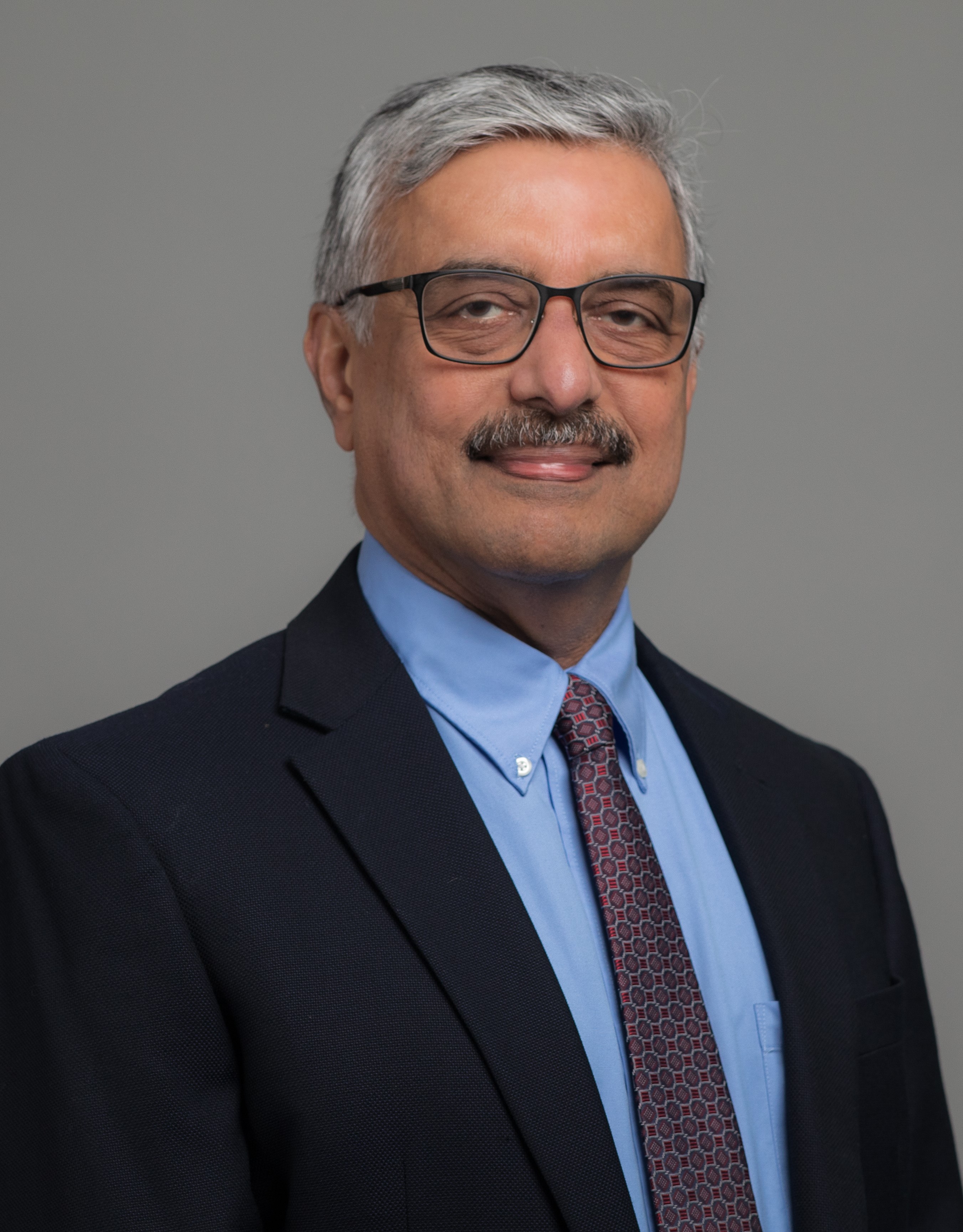
Bio
Raghavendra ("Raghu") Rao, MD is a tenured Professor of Pediatrics and Director of the Division of Neonatology. He earned his MD at Mysore University in India. In addition to his postgraduate training in Mangalore and Chandigarh, India, he spent a year in Pediatric Residency at the University of Minnesota before completing his Neonatal-Perinatal Medicine Fellowship at the University of Minnesota. When not attending on the Neonatal Intensive Care Unit at the University of Minnesota Masonic Children's Hospital, Dr. Rao is involved in research on neurodevelopment under normal and adverse perinatal conditions. Dr. Rao's research interests include early life iron deficiency, hypoglycemia, hyperglycemia and intraventricular hemorrhage. He utilizes high-field NMR spectroscopy, molecular and histochemical analyses, and metabolomic and proteomic analyses of biofluids in his research. Dr. Rao's research is funded by grants from the National Institutes of Health, Regenerative Medicine Minnesota and Viking Children's Fund. Dr. Rao is also a faculty member of the Masonic Institute for the Developing Brain and a Senior Advising Member of the Graduate Program in Neuroscience at University of Minnesota.
Research Summary
A major focus of our research is biomarker discovery using proteomic and metabolomic analyses of paired plasma and CSF samples from nonhuman primate infants with early-life iron deficiency. Early-life iron deficiency anemia is associated with long-term neurodevelopmental impairments in human infants and does not respond to iron treatment. Our goal is to discover plasma biomarkers of impending brain dysfunction in the preanemic period that can be used for early treatment of iron deficiency in human infants. This is a collaborative project with researchers from University of Wisconsin Madison and University of North Carolina, Chapel Hill.
Our second goal is to develop novel therapeutic strategies for promoting normal brain development in adverse perinatal conditions. In this area, we are investigating umbilical cord stem cell transfusion as treatment for intraventricular hemorrhage in preterm infants, and intranasal insulin administration as treatment for neonatal hyperglycemia and perinatal iron deficiency in animal models. We collaborate with researchers from the Departments of Pediatrics, Cell Therapeutics, Neurosurgery, Psychology and the Center for Magnetic Resonance Research at the University of Minnesota, and Alzheimer's Research Center at Regions Hospital in St. Paul in these studies.
Clinical Summary
Neonatal intensive care, Neurodevelopment
Education
Fellowships, Residencies, and Visiting Engagements
Licensures and Certifications
Honors and Recognition
Contact
Address
Pediatric NeonatologyAcademic Office Building
2450 Riverside Ave S AO-401
Minneapolis, MN 55454
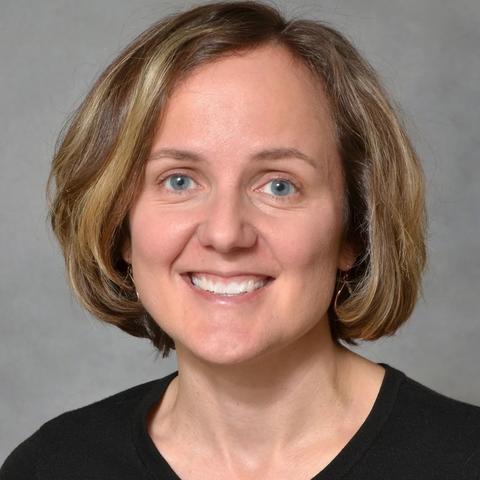
Bio
Dr. Michelle Rheault is a board certified pediatric nephrologist and Professor of Pediatrics. She completed her Pediatric Nephrology fellowship at the University of Minnesota in 2006 followed by a research fellowship at Mount Sinai School of Medicine in New York City. She joined the faculty at the University of Minnesota in 2008 and is currently the Director of the Division of Pediatric Nephrology and medical director of the pediatric dialysis unit. She is on the steering committee of the Pediatric Nephrology Research Consortium, a clinical research network that aims to facilitate collaboration in pediatric nephrology. Her clinical and research interests include Alport syndrome and other genetic kidney diseases, pediatric glomerular disease, and pediatric end stage kidney disease.
Education
Fellowships, Residencies, and Visiting Engagements
Licensures and Certifications
Honors and Recognition
Contact
Address
AO-201 Academic Office BuildingMinneapolis, MN 55454-1435


Bio
While cystic fibrosis is considered a pulmonary disease, attention to excellent nutrition and good growth is essential to optimal pulmonary function and extended survival. I consider my role in the management of children with cystic fibrosis to reduce pain and disability associated with gastrointestinal and liver disease in CF, and to offer aggressive interventions to improve nutrition in children unable to achieve normal growth. I am proud to be a member of a team of caregivers dedicated to both superior clinical care of children with CF, and to clinical research to improve survival in this disease.
Clinical Summary
Pancreatic disease; Chronic pancreatitis; Pancreatectomy/auto islet cell transplantation; Pediatric liver disease, particularly Hepatitis B; Gastrointestinal, nutritional and liver disease in cystic fibrosis
Education
Fellowships, Residencies, and Visiting Engagements
Licensures and Certifications
Honors and Recognition
Contact
Address
Pediatric Gastroenterology, Hepatology & NutritionAcademic Office Building
2450 Riverside Ave S AO-201
Minneapolis, MN 55454

Bio
Logan G. Spector's research focuses on the causes of childhood cancer with a focus on childhood leukemia, bone sarcomas, and hepatoblastoma. His work includes both traditional and genetic epidemiologic approaches. He works in collaboration with colleagues and trainees locally, nationally and internationally through the University of Minnesota, Children's Oncology Group and the Childhood Cancer and Leukemia International Consortium (CLIC). In addition, Dr. Spector collaborates with departmental colleagues in cardiology, rheumatology, and infectious diseases to study other pediatric outcomes. Dr. Spector is immediate past Chair of the Children's Oncology Group Epidemiology Committee; a former standing member of the NIH Cancer, Cardiovascular, and Sleep Epidemiology panel B study section; and an ad hoc reviewer for many journals. Currently Dr. Spector is Chair of CLIC, which pools epidemiologic studies of pediatric cancers from across the world to better ascertain their causes.
Training and experience: Dr. Spector received his PhD in Epidemiology in 2002 from Emory University, where he conducted his dissertation research on childhood acute lymphoblastic leukemia in conjunction with the Centers for Disease Control and Prevention. After a year as a National Cancer Institute-funded postdoctoral fellow at the University of Minnesota, he joined the faculty as Assistant Professor of Pediatrics in the Division of Epidemiology/Clinical Research at the University of Minnesota.
Research Summary
Childhood Cancer & Leukemia International Consortium: clic.ngo
Education
Contact
Address
Pediatric Epidemiology & Clinical ResearchMayo Mail Code 715
420 Delaware St SE
Minneapolis, MN 55455


Bio
Dr. Steinberger is a Professor and Division Director in Pediatric Cardiology. She is the Director of the Pediatric Lipid Clinic at the University of Minnesota, Medical Director of the Pediatric Echocardiography Laboratory at the University of Minnesota Medical Center and Director of Research at the University of Minnesota National Center of Excellence in Women's Health.
Dr. Steinberger earned her MD degree at Sackler School of Medicine, Tel-Aviv University in Israel and completed her residency in Pediatrics at the Golda Medical Center, Hasharon Hospital, Sackler School of Medicine, Tel-Aviv University in Israel. She completed a fellowship in Pediatric Cardiology at the University of Minnesota and obtained a Master's degree in Clinical Research, School of Public Health at the University of Minnesota.
Dr. Steinberger's research interests are focused on clinical and epidemiologic studies of metabolic syndrome, insulin resistance, and cardiovascular risk factors in children and young adults. She has been and continues to be funded by the NIH in these studies. She currently serves on several committees of the American Heart Association and on expert panels in areas of preventive cardiology.
Clinical Summary
Echocardiography; Hyperlipidemia; Preventive Cardiology
Education
Fellowships, Residencies, and Visiting Engagements
Licensures and Certifications
Honors and Recognition
Contact
Address
Pediatric CardiologyAcademic Office Building
2450 Riverside Ave S AO-401
Minneapolis, MN 55454
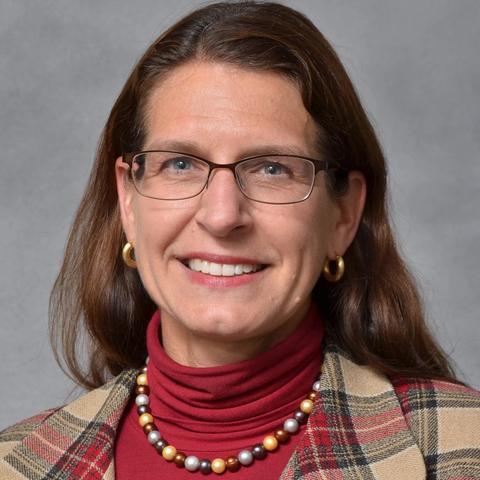
Bio
Dr. Brenda Weigel is currently the Director of the Division of Pediatric Hematology/Oncology. She is a professor cross-appointed at the University of Minnesota's Cancer Center and the Department of Pediatrics, and the recipient of the Lehman/Children's Cancer Research Fund Endowed Chair in Pediatric Cancer. She is also the Co-Director of the Sarcoma Program for the Masonic Cancer Center, and an Associate Director of the Cancer Experimental Therapeutics Initiative for the Masonic Cancer Center.
Dr. Weigel received her medical degree from MacMaster University in Hamilton, Ontario, and did her residency in Pediatrics at the University of Western Ontario. She came to the University of Minnesota in 1996 to do a Fellowship in Pediatric Hematology/Oncology and Bone Marrow Transplant. During her four-year fellowship, Dr. Weigel worked in the lab of Dr. Bruce Blazar and developed a murine model of rhabdomyosarcoma.
Clinical Summary
Sarcomas; developmental therapeutics; leukemias
Education
Fellowships, Residencies, and Visiting Engagements
Licensures and Certifications
Honors and Recognition
Contact
Address
Pediatric Hematology-OncologyMayo Mail Code 484
420 Delaware Street SE
Minneapolis, MN 55455
Administrative Contact
Elizabeth Hendrickson Nalli
Administrative Phone: 612-626-5501
Administrative Email: hend1075@umn.edu
